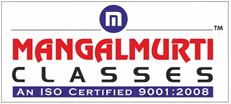
Database Course
Delving Into The Depths Of Databases : Your Guide To Understanding And Mastering Them Databases are the silent powerhouses behind countless applications we use daily, storing and organizing information efficiently. Whether you're a budding programmer, data analyst, or simply curious about how things work, understanding databases is a valuable asset. So, let's embark on a journey to explore this fascinating realm:
What is a Database?
Simply put, a database is a structured collection of data, typically electronically stored and managed by a software system called a Database Management System (DBMS). Databases organize information into tables with rows and columns, allowing for efficient retrieval, manipulation, and analysis.
Types of Databases :
Relational Databases : Organize data into related tables with defined relationships, like customer orders and order details. Popular examples include MySQL, Oracle, and Microsoft SQL Server.
NoSQL Databases : Offer flexibility for unstructured or semi-structured data, often used for big data and web applications. Examples include MongoDB, Cassandra, and Couchbase.
Cloud Databases : Hosted and managed by cloud providers like Amazon Web Services (AWS) and Microsoft Azure, offering scalability and ease of use.
Why are Databases Important?
Organization and Efficiency : Databases store and manage large amounts of data efficiently, ensuring quick access and retrieval.
Data Integrity and Consistency : Rules and constraints maintain data accuracy and prevent inconsistencies.
Data Sharing and Collaboration : Databases enable multiple users to access and update information simultaneously.
Data Analysis and Insights: Powerful tools within databases and external applications unlock valuable insights from stored data.
Benefits of Learning about Databases:
Career Opportunities : Database skills are highly sought-after across various industries, leading to promising career paths.
Personal Development : Understanding databases enhances your thinking skills and problem-solving abilities.
Data Literacy : Empowers you to critically analyze and utilize information effectively in an increasingly data-driven world.
Getting Started with Databases :
Choose a platform : Consider relational databases like MySQL or PostgreSQL for starters, or explore NoSQL options like MongoDB.
Online Resources : Utilize free tutorials, interactive courses, and documentation from database providers and learning platforms.
Practice and Experiment : Set up your own database (cloud-based or local) and practice creating tables, inserting data, and querying it.
Community Engagement : Join online forums and communities to connect with other learners and experts, ask questions, and share experiences.
We are Provide courses in Database Course Near Me, Database Course in Ambernath, Database Course Kalyan, Online Database Course, Database Course Thane, Database Course Near Me, Database Course Palghar, Database Course Navi Mumbai, Database Course Khopoli, Database Course Wada, Database Course Bhivandi.

